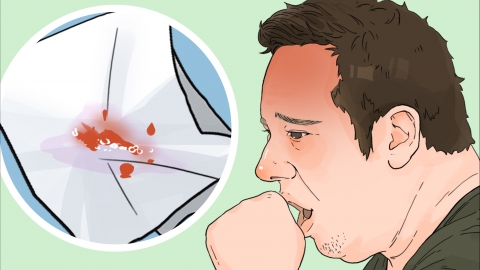What causes vomiting blood in liver disease?
Generally, hematemesis (vomiting blood) caused by liver disease may be related to excessive alcohol consumption, drug abuse, acute hepatitis, cirrhosis, liver failure, and other factors. It is recommended to seek timely medical attention and undergo general treatment or medication under a doctor's guidance. Detailed analysis is as follows:

1. Excessive Alcohol Consumption
Long-term or excessive alcohol consumption can cause liver damage, leading to alcoholic liver disease, which may progress to cirrhosis. This reduces the liver's ability to synthesize clotting factors, increases vascular fragility, and makes bleeding more likely. It is recommended to limit alcohol intake to protect liver health.
2. Drug Abuse
Drugs such as nonsteroidal anti-inflammatory drugs (NSAIDs) and antibiotics are metabolized in the liver. Long-term or inappropriate use may damage the liver and affect coagulation function. It is recommended to take medications as directed by a physician and avoid adjusting dosages or misusing drugs independently.
3. Acute Hepatitis
Acute hepatitis is usually caused by viral infection. Hepatitis damages liver cells, reducing the synthesis of clotting factors, while causing congestion in surface liver vessels, making bleeding more likely. It is typically accompanied by symptoms such as jaundice, nausea, and vomiting. Treatment generally follows medical advice and may include medications such as compound glycyrrhizin tablets, magnesium isoglycyrrhizinate injection, and silybinin dimethylaminoethanol salt tablets.
4. Cirrhosis
Cirrhosis is usually caused by factors such as hepatitis, alcohol intoxication, and drug-induced liver injury. Cirrhosis impairs the liver's ability to synthesize clotting factors, and portal hypertension leads to esophageal and gastric varices, which are prone to rupture and bleeding. Symptoms typically include ascites, fatigue, and loss of appetite. Treatment under medical guidance may involve medications such as entecavir tablets, sofosbuvir tablets, and polyene phosphatidylcholine capsules.
5. Liver Failure
Liver failure is usually caused by drug-induced liver injury, autoimmune liver disease, and other factors. In liver failure, the liver's ability to synthesize clotting factors is nearly lost, and systemic coagulation mechanisms become disordered, making bleeding highly likely. Symptoms may also include worsening jaundice, ascites, and hepatic encephalopathy. Treatment under medical guidance may include medications such as lamivudine tablets, adefovir dipivoxil tablets, and hepatocyte growth factor injections.
It is recommended to maintain a balanced diet, choosing protein- and vitamin-rich foods such as lean meat, eggs, and fresh fruits and vegetables. Alcohol consumption must be strictly avoided, and spicy, greasy, or pickled foods should not be consumed, as these measures help promote physical recovery.




